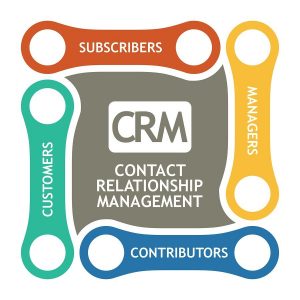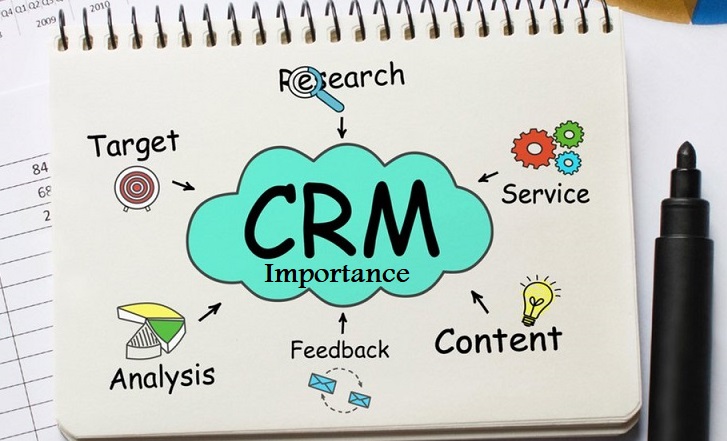Lack of communication between sales and marketing teams is the most common source of conflict for 2 out of 5 marketing professionals. Efficiency is observed to drop steeply when sales and marketing teams do not share key data related to performance, campaigns and customers. A coordinated effort is the key to improving sales performance and success of marketing campaigns. As customer happiness is associated with positive performance of KPIs related to these two teams, communication between the two teams are absolutely necessary.

Without coordination between sales and marketing teams, you stand to:
- Spend more on parallel campaigns without seeing results
- Relevancy of sales message suffers, while marketing campaigns may be perceived as “out of touch” by customers
- Redundancy of customer communication eventually results, and customer satisfaction scores drop down
What you should really do:
- Begin with sharing CRM data between sales and marketing teams
- Integrate sales and marketing performance tracking by increasing inter-team collaboration
- Share the responsibility of KPI performance among both the teams
- Sales and marketing campaigns should be planned together, and should be in sync with each other Performance auditing should be collaborative and consistent with shared goals
When businesses implement CRM, they often do not realize the confusion that results when customer data is repeatedly entreated into the system by different teams. Though one of the primary goals of CRM is to hold all customer-related data on a single software program, exactly the opposite happens. If data is closed and is not accessible to different teams, it may result in redundancy and even duplicity. It is important to have a unified customer database for both the sales and marketing teams. Any changes made to this database should be visible to both the teams.

You cannot expect data to be consistent if:
- You do not allow marketing teams to access sales data and vice versa
- Campaign performance data needs to be coordinated
- Communication between teams is poor, and healthy inter-team dynamics is not stressed
- You give room to the infamous sales and marketing rivalry
- Deskera CRM Campaigns will be able coordinate with teams and take responsibility of KPI performance among both the teams
Make sure to:
- Treat customer data as a single database
- Allow everyone in sales and marketing teams to view changes made to the database
- Run analytics and report generation tools with both sales and marketing data in mind
- Share predictions with both the teams if you have prediction tools installed
Your customers are important to your business. In fact, no matter what your industry is, no matter what your focus, no matter what kind of products or services you offer, your customers are the single most valuable asset of your organization; Customers give your company a sense of purpose and direction. They provide invaluable feedback, and serve as a springboard for new concepts and ideas. And let’s not forget about the revenue they bring in. When all is said and done, customer satisfaction should be the number-one focus of any business. This means more than simply appreciating your customers; it means understanding them.

Successful companies do more than just find new customers, they maximize every interaction with the customers they already have at the same time, too. Doing that requires more than just keeping track of names and basic contact information, though. It means some record-keeping effort on the part of your customer-facing employees, and it also requires a database-driven system that records everything your sales people need to know to keep customers happy, and most importantly, keep them buying. That’s where a customer relationship management system (CRMS) comes in.
Customer Relationship Management Software (CRMS)
A CRM system (Customer relationship management software) essentially provides a central place where businesses can store customer and prospect data, track customer interactions, and share this information with colleagues. It allows businesses to manage relationships with customers, helping the business to grow rapidly. A CRM system needs to be more than just an afterthought for your sales team. These tools nurture customer sentiment, record and analyse interactions, and, most important, find and leverage new opportunities.
The Benefits of a CRM system
Improved ability to cross-sell
CRMS helps record your customers’ contact information and remembers the details of your relationship and every interaction—whether by phone or email, and nowadays across other channels such as social media or even your customer helpdesk. This information is a gold mine of opportunity, letting you identify prospects for up-sell or cross-sell, convert existing customers to new products or services, target new marketing, or even track invoices. Choosing the right CRM software for your business can dramatically improve your team’s collaboration and productivity, increase sales, and heighten customer satisfaction.
Improved efficiency in serving clients
CRMS allows you to have a more targeted and cost-efficient marketing program. By understanding your customer needs and behaviour, you will be able to identify the correct time to promote your product. A CRM will also help you segment your customers and give you better insight into identifying which are the more profitable customer groups to look out for. By pinpointing important information such as revenue generated, leads, as well as results of your marketing campaigns, you’ll be able to easily generate reports. Better reporting data means you will be able to make effective business decisions and improve revenue in the long run.
Customer Satisfaction
CRMS helps you improve customer satisfaction. By using this strategy, all dealings involving servicing, marketing, and selling your products and services to your customers can be conducted in an organized and systematic way. You can also provide better service to customers through improved understanding of their issues with CRM. You will be able to improve your customer retention rates – which often translates into increased revenue for your organization.
Conclusion
Your customers are the most important part of your business, and keeping them happy should be your top priority. Don’t put your business at risk; Invest in a quality CRM system, and prove to your clients that you care about their satisfaction. The CRM process shouldn’t be about having to work harder but about working smarter, so that your customers get what they want, and you do too.
